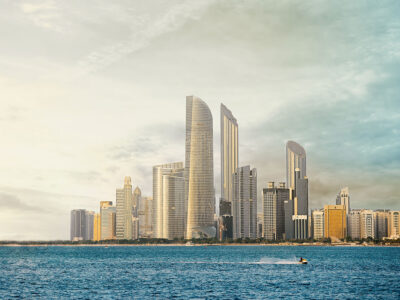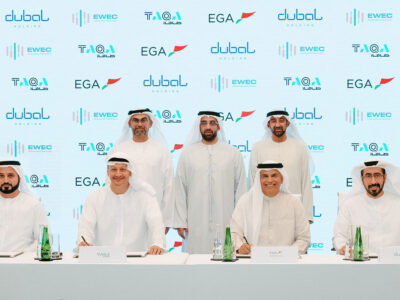A commitment by PwC Middle East to achieve net zero greenhouse gas emissions by 2030, is “absolutely essential” for the global consultancy giant, according to Stephen Anderson, the organisation’s Middle East strategy and markets leader.
The move was announced on Tuesday as part of ‘The New Equation’, a global strategy which responds to fundamental changes in the world, including technological disruption, resource scarcity, demographic and social change, and the continuing effects of the Covid-19 pandemic.
According to a statement this will involve transforming the company’s business model to decarbonise the value chain.
Anderson told Arabian Business: “It’s absolutely essential. I think there’s both the regulatory imperative, there’s the financial imperative in that you need funding, and then probably most important there’s the societal imperative. Our employees expect it, our clients expect it so there’s no choice really.
“If we’re going to be advising our clients in their transition to net zero, then we need to be doing it ourselves and leading the way, hence why we’re making that commitment.”
According to a major report published by the Data-Driven EnviroLab and the NewClimate Institute in September last year, the number of commitments to reach net zero emissions from local governments and businesses had roughly doubled in less than a year as many prioritise climate action in their recovery from Covid-19.
Anderson said the focus would be on a four-point plan, centring around the buildings operated in the region and their efficiency and recycling initiatives; a drive towards renewable energy sources; PwC’s own supply chain; and the future of business travel.
On the latter, he said: “we’re a contact sport in consulting and advisory and we have to go and see our clients, so travel is a big part of our footprint.
I guess coming out of the pandemic there’s two aspects to that we’re developing. Obviously remote working is helping a lot and we’ve discovered that we don’t need to travel as much or as extensively as we did.
 Stephen Anderson, Strategy and Markets Leader at PwC Middle East
Stephen Anderson, Strategy and Markets Leader at PwC Middle East
“We need to formulate that and keep the positive that came out of the last 15 months in our business.
“The other big lesson from the pandemic and theme in the region is localisation, so we are looking at how we put more of our people on the ground next to our clients, rather than flying them in.
“And obviously where we do have the requirement to travel, we will look at various offset programmes to try and offset any of the impact that we do make.”
PwC Middle East has also vowed to create an ESG Centre of Excellence across the region, focused on energy transition and the broader ESG agenda.

“The centre will do three things, firstly it will act as a support to our clients. Obviously it will help them through their ESG journey. Secondly we’re forming partnerships with a range of academia in the region to drive thought leadership of what does ESG mean in a Middle East context and what that could mean in terms of standard setting and expectations.
“Thirdly it’ll have a role in driving an ESG capabilities for our own people. We’ve got to upskill all 6,500 of our people so there will be a general upskilling in ESG across all of our people,” said Anderson.
“ESG will form part of most of the work that we do, be that either on delivering sustained outcomes and/or building trust.”





